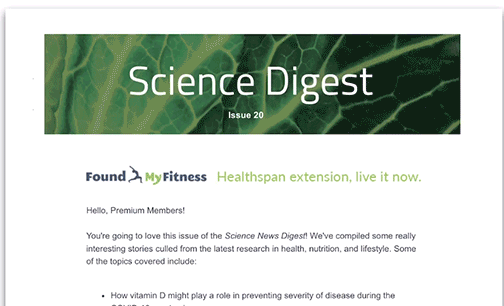Progress of FDA approval of psilocybin, & associated risks & contraindications for use | Roland Griffiths
Get the full length version of this episode as a podcast.
This episode will make a great companion for a long drive.
The Omega-3 Supplementation Guide
A blueprint for choosing the right fish oil supplement — filled with specific recommendations, guidelines for interpreting testing data, and dosage protocols.
People who are terminally ill, such as those who have cancer, often experience feelings of depression and anxiety associated with facing a life-threatening illness. Psilocybin use, under safe, controlled conditions, may offer a means for helping address these feelings. Gaining FDA approval of psilocybin under these conditions is problematic, however, due to the negative connotations associated with the compound's use and the potential for harm when used in vulnerable populations. In this clip, Dr. Roland Griffiths discusses the potential uses, challenges, and risks associated with gaining FDA approval for psilocybin use as a therapeutic treatment.
Roland: But for our immediate therapeutic target, it's cancer and it's this depression and anxiety associated with cancer. Wherein the groups that I'm working with are in very early stages of communicating with FDA about undertaking a phase three clinical trial which would be the necessary next step, and if efficacy were demonstrated, then there's the potential for approvability of psilocybin as a medication.
Rhonda: Wow. That was going to be my next question.
Roland: And were to be approved, we would see it approved under very constrained conditions. Perhaps the drug would be held by a central pharmacy. It would be dispensed to clinics that offer this kind of therapy with clinicians who know how to deliver this therapy because it is this interaction of context and pharmacology. This is not just an effective of psilocybin. And in fact, there are risks associated with just taking psilocybin that we really shouldn't minimize. Those are some of the risks that resulted in the deep cultural misunderstanding of these compounds and ultimately the removal of them from clinical research for decades, but we just, actually very recently, completed and published a large survey study of people who...this was about 2000 people, and we asked them, have you ever had a bad trip after taking psilocybin mushrooms? And then we asked them to describe their very worst experience with psilocybin mushrooms.
So we don't have any denominator to know what the frequency of this sort of thing is, but the results of that are sobering. So if you ask these people what were the consequences of their worst experience, we have about 10% who say that they may have put themselves or others at risk of physical harm during the experience. And there's some percentage of people who say that they have enduring psychological problems for which they are seeking out psychological or psychiatric help with a year after the experience.
So it suggests that there can be immediate dangers and we know that, to exposure to psilocybin. People can put themselves at risk. And most often, that occurs in fear or anxiety responses, but under conditions where people take the compound and they don't know what they're doing, they don't know what dose they're getting, they're not supported, and then people can end up dying. And so there's that risk. And then there's the potential risk of vulnerable populations, people who may already have pre-existing vulnerabilities to psychotic disorder or to...they might have personality disorders or some other mood...pre-existing disposition toward mood disorders that may make them unusually sensitive to potential negative effects of psilocybin.
So we really need to footnote all this work and make sure that the take-home message is, "Great, everybody should take psilocybin mushrooms." No, there are going to be some people who are going to truly be hurt and we need to do everything we can to protect people, particularly young and vulnerable people.
A disturbing experience typically associated with use of one or more of various hallucinogens. The manifestations can range from feelings of vague anxiety and alienation to profoundly disturbing states of unrelieved terror, ultimate entrapment, or complete loss of self-identity (ego death).
A mood disorder characterized by profound sadness, fatigue, altered sleep and appetite, as well as feelings of guilt or low self-worth. Depression is often accompanied by perturbations in metabolic, hormonal, and immune function. A critical element in the pathophysiology of depression is inflammation. As a result, elevated biomarkers of inflammation, including the proinflammatory cytokines interleukin-6 and tumor necrosis factor-alpha, are commonly observed in depressed people. Although selective serotonin reuptake inhibitors and cognitive behavioral therapy typically form the first line of treatment for people who have depression, several non-pharmacological adjunct therapies have demonstrated effectiveness in modulating depressive symptoms, including exercise, dietary modification (especially interventions that capitalize on circadian rhythms), meditation, sauna use, and light therapy, among others.
A naturally occurring psychedelic compound produced by more than 200 species of mushrooms. As a prodrug, psilocybin is quickly converted by the body to psilocin, which has mind-altering effects including euphoria, visual and mental hallucinations, changes in perception, a distorted sense of time, and spiritual experiences, and can include possible adverse reactions such as nausea and panic attacks.
Member only extras:
Learn more about the advantages of a premium membership by clicking below.
Get email updates with the latest curated healthspan research
Support our work

Every other week premium members receive a special edition newsletter that summarizes all of the latest healthspan research.
Psychedelic News
- Microdosing psychedelics may assist people in making health-related behavior changes.
- Psilocybin, a compound in psychedelic mushrooms, extends cellular lifespan by up to 57% and promotes healthy aging in mice, implying potential anti-aging benefits.
- Depression symptoms dropped markedly after one 25-milligram psilocybin dose in a study of people with severe treatment-resistant depression.
- Psilocybin from 'magic' mushrooms offers comparable or enhanced depression relief over traditional SSRIs, improving social functioning and life meaning.
- Older adults who used psychedelics exhibited better cognitive function and fewer depressive symptoms than non-users.






